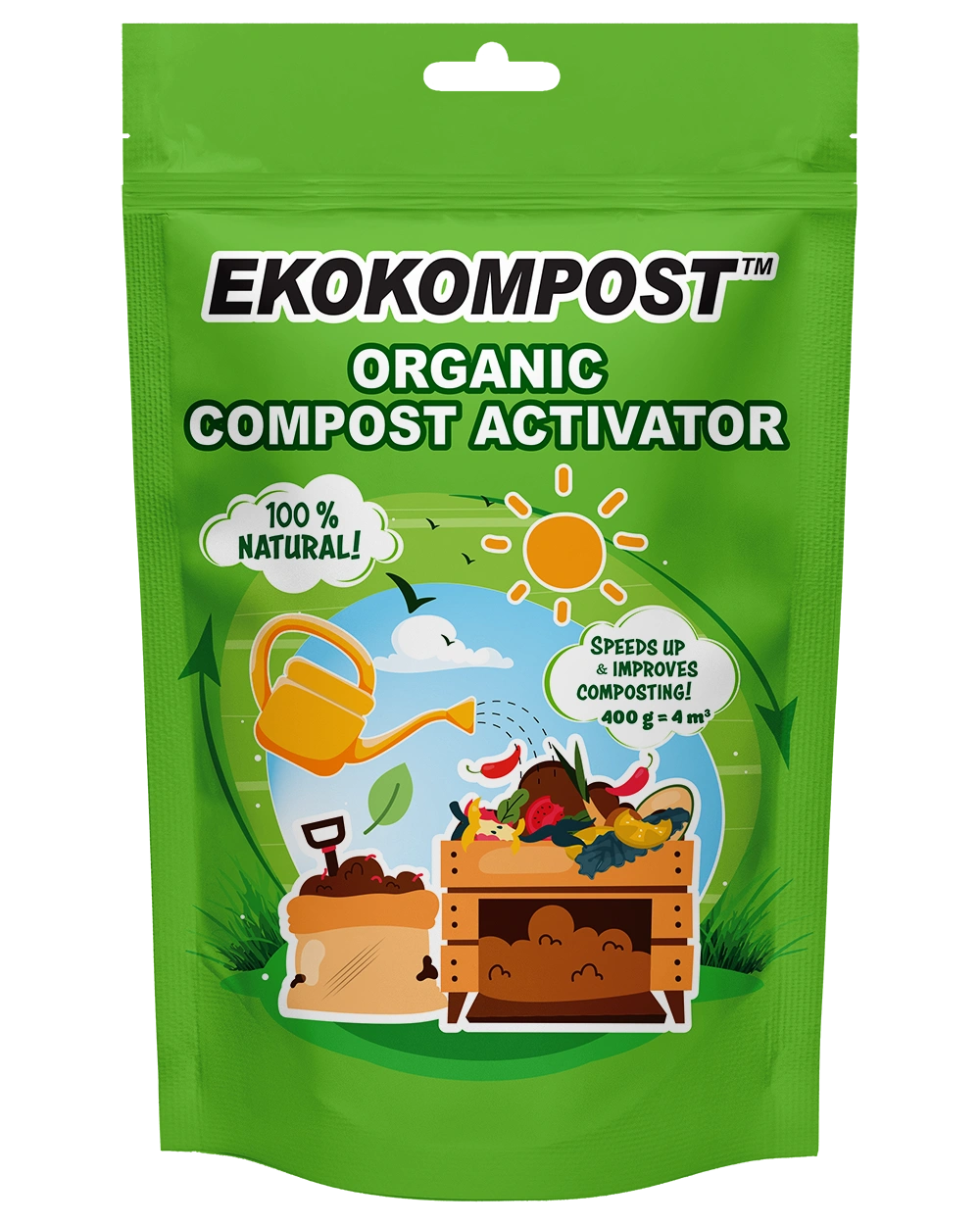HANTPOL® Tips & Guides
How to Compost in Winter

Is Winter Composting Worth It?
Many people wonder if composting in winter is worthwhile, given that low temperatures slow down decomposition processes.
The answer is a resounding yes!
While winter conditions may limit the activity of the microorganisms responsible for composting, the process doesn’t stop entirely. The compost bin works more slowly, but organic matter still breaks down, meaning you’re preparing for a springtime boost in composting activity.

Keep the Compost Bin Warm
In winter, it’s crucial to retain heat within the compost bin. Left alone, the compost can freeze completely or dry out. Biological processes may even halt if the compost gets too cold.
The heat generated during organic material breakdown not only indicates active microorganisms but is also essential for effective winter composting.
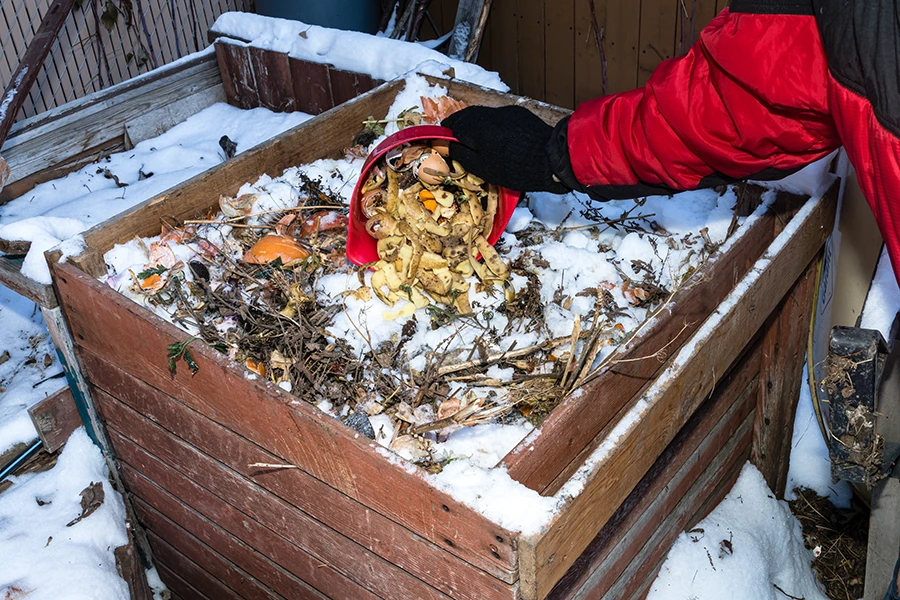

Prepare the Compost Bin in Fall
By taking care of the compost bin in the fall, we can prepare it for winter conditions.
A good practice is to layer the compost, which helps maintain optimal conditions for bacteria and microorganisms. Leaves, branches, and straw make excellent insulators.
To further increase the temperature in the compost bin before winter, add nitrogen-rich materials that will support fermentation processes, such as grass clippings, leaves, and vegetable and fruit scraps. Manure is also an excellent source of nitrogen, though not everyone has access to it.
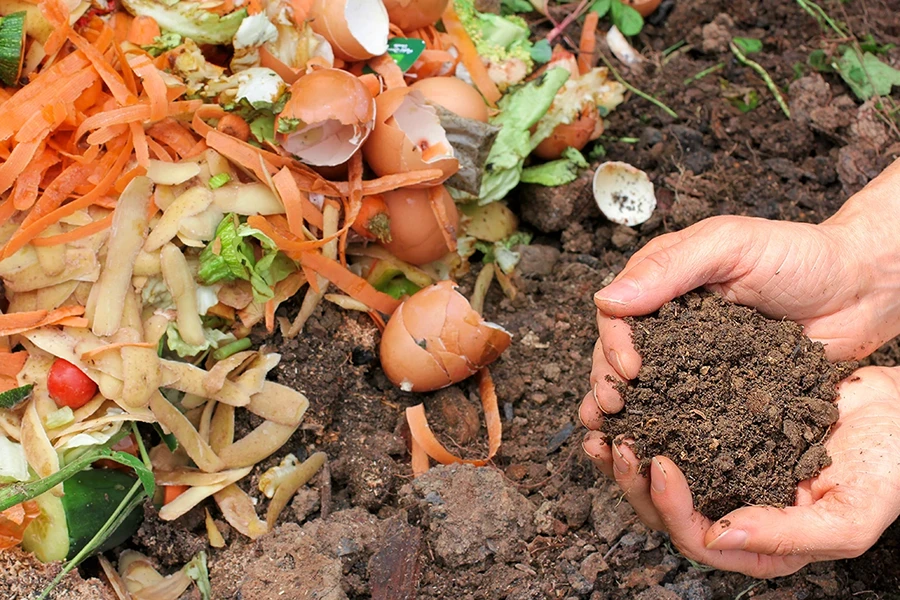

Cover and Insulate the Compost
We’ve established that a warm compost bin is a healthy compost bin, so let’s ensure proper insulation from the cold and prevent the compost from drying out.
Compost insulators can include agricultural fabric, hay, and various types of sawdust, wood chips, and bark. It’s worth covering the top of the compost bin in the fall when cold days begin.
You can also cover the compost with a tarp or shield it with boards to protect it from the cooling effects of wind. However, keep in mind that whatever materials you use should allow air and water to pass through.
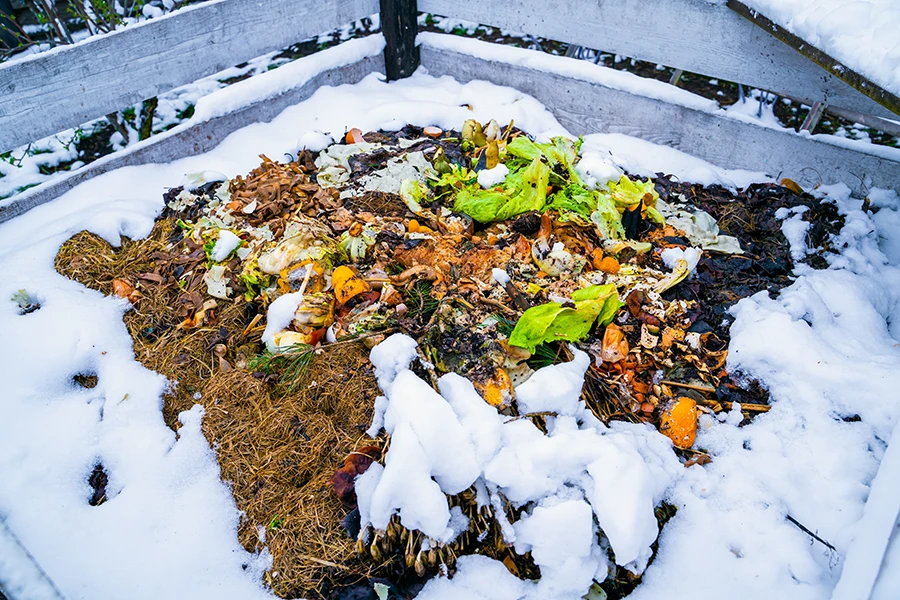

Should You Aerate in Winter?
Aerating the compost is as important in winter as in other seasons. Regularly turning the compost layers supplies oxygen, which speeds up proper decomposition. However, there’s an important factor to keep in mind: warmth.
In winter, be careful not to turn the compost too often to avoid losing stored heat. A well-aerated compost bin won’t work effectively if it freezes during this process.
Avoid turning the compost during periods of very cold days and nights to prevent beneficial organisms (like earthworms) from freezing. If temperatures are low, consider pausing compost work temporarily.
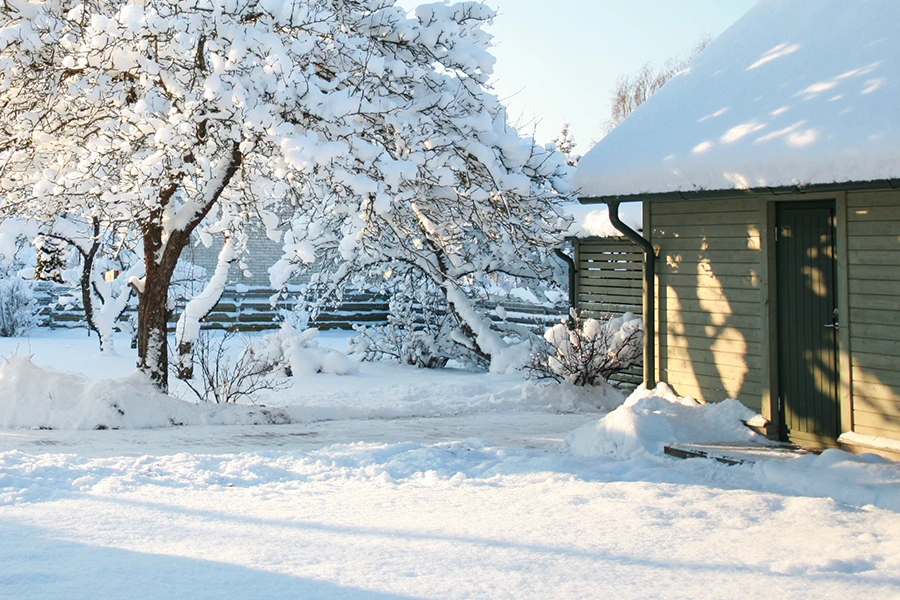

Use a Compost Activator
Just like in summer, compost activators support the breakdown of organic matter in the compost bin during winter.
Ekokompost™ contains selected strains of composting bacteria that work even at low temperatures. This natural bioproduct aids composting without harming beneficial organisms like earthworms, which also help decomposition.
Ekokompost™ also eliminates unpleasant odors that may arise in the compost bin.
Using it will prepare your compost bin for winter, and in spring, you’ll have high-quality compost ready for use in the garden.
